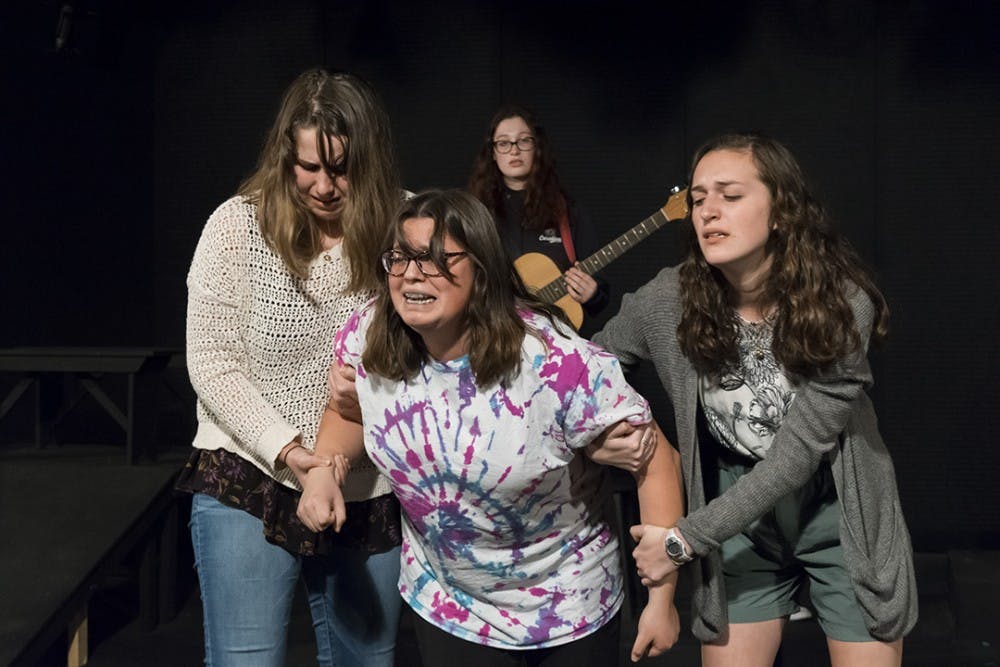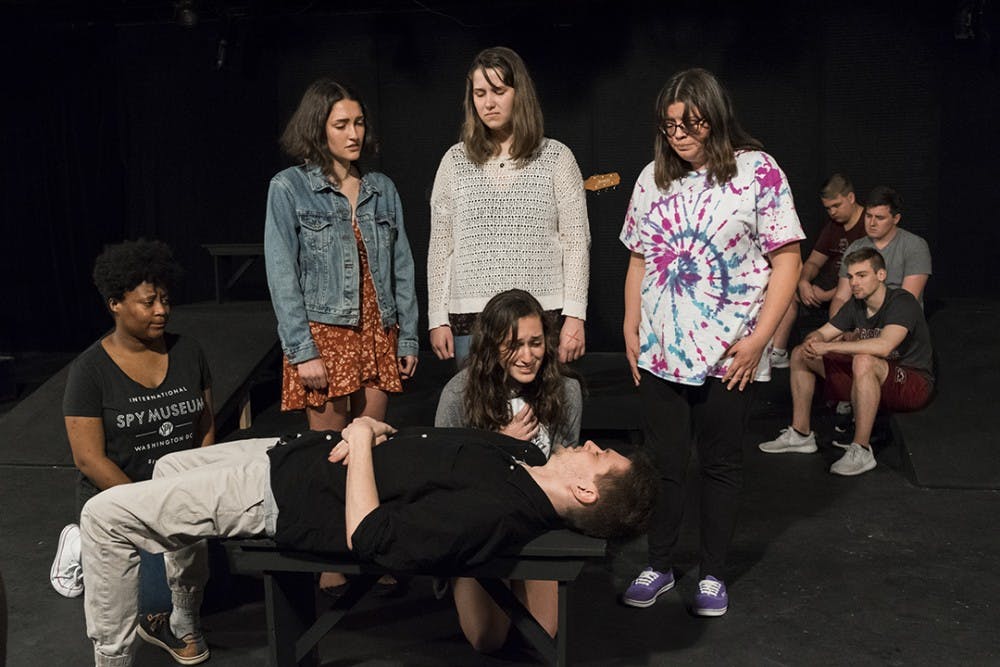Although revisiting one of the most turbulent times in American history might seem like a daunting undertaking, director David Britt hopes to approach the task with honesty and humility. In his upcoming production of Shirley Lauro's “A Piece of My Heart,” Britt pays tribute to the American servicewomen who served in Vietnam through gripping storytelling and the help of a dedicated cast.
“It’s about the women who contributed and what they meant to the soldiers that were there, and what the soldiers meant to them,” Britt said.
“A Piece of My Heart,” which premieres on March 1 at the Lab Theatre, was originally written by Lauro in the ‘90s and follows the lives of six different women who volunteer to serve in the Vietnam War. The group includes multiple nurses, a strategic intelligence officer and a traveling country singer who has been commissioned to entertain the troops. Despite their various backgrounds, the women are united by their duties to the men on the front lines and their struggles to cope with the horrors of war.
While the first act focuses on their time in Vietnam, the second act tackles the subsequent years as the women return to America and attempt to pick up the pieces the war has left behind.
Britt, who has been involved with theatre since he was 14 years old, is currently on his 10th year as a senior instructor in the theatre and dance program at USC. His familiarity with Lauro’s work led him to seize the perfect opportunity to share the particular message he had in mind.
“I wanted a play that was about women serving the country, and their survival, and their strength and how important that is,” Britt said.
The cast includes 13 undergraduate students: six lead actresses and seven supporting actors who play a myriad of roles ranging from soldiers to civilians. Traditionally, Lauro’s text calls for one man to portray all of the roles of the various male characters. However, Britt’s decision to cast multiple actors is to allow for a more "scenic” viewing experience. In addition to the casting change, Britt’s version of the play incorporates live music as well. Still, Britt finds his biggest challenge is moving so many people around on a such a small stage, particularly a cast of students, the majority of whom are 19 years old.
“They’re a big group, and they’re a loud one,” Britt said.
During their first night of rehearsal, Britt recalls playing the song “19” by Paul Hardcastle and learning that much of his cast was the same age as the average U.S. soldier in Vietnam. This newly discovered common ground between the cast and their characters ultimately helped push their work even further.

Kayla Crumbley, a second-year theater student, plays B.J. Steele, an African-American strategic intelligence officer who, regardless her high rank, still receives unfair treatment from her superiors.
“I think it’s very interesting, the things that she kind of has to go through a little bit differently than some of the other nurses ... whether that be discrimination as a woman, or discrimination as, particularly a black woman,” Crumbley said.
Although she isn’t a traditional theater actor by trade, Crumbley hopes she can reflect Steele's internal struggles and has left it unto herself to fill in the missing blanks of her character to make Steele as fleshed out as possible.
Rosa Ramirez, a second-year anthropology student plays Leanne, a nursing student who decides to volunteer despite her personal feelings toward the war.
“She’s this very strong, resilient woman, and she’s completely against the war before having the thought of volunteering for Vietnam. But when she goes over there ... it breaks a barrier down to why she was against the war because of all that’s going on,” Ramirez said.
The male cast members are in virtually every scene but mostly are indirectly involved with the servicewomen while onstage.
For example, Alex Long, a first-year physics student, plays several soldiers in the first act and returns “as a jerk in a bar who’s very rude to one of the nurses whilst trying to pick her up” in the second act.
Another male cast member is Alexander Robinson, a second-year political science student takes on four roles in the show, but it isn't the volume of lines that poses the greatest challenge.
“It’s strange because for the majority of the play we stay onstage, but we’re not having lines, so we’re still there performing and staying present in the show while not talking ... so that’s a challenge to be able to react the right amount and not react when we need to,” Robinson said.
Although the male characters serve to anchor the female cast, Long still hopes he and his peers can “make them memorable and interesting in their own right.”
Like their onstage counterparts, the female cast members have created a strong bond and have enjoyed coming to every rehearsal — especially the ones where the male cast members bring them cookies beforehand and wish them luck.
“It’s been a really heavy show, especially in act two, and then having this bond, especially with the ladies ... it’s still been really fun and really engaging,” Crumbley said. “I look forward to seeing how it is going to come through in the end and hopefully we can tell this story really, really well and it’s as emotional and energized as it feels for us.”
After about six weeks of rehearsal, both the cast and crew are in the process of polishing the project and are excited to share the finished product. For much of the cast, the process of putting together the show has been eye-opening and they wish that audiences leave with compassion and understanding.
“I think I’d like everyone to take away that these women ... went through so much and everything that you think affects the typical Vietnam soldier ... it affected all the women too,” Long said. “I think it’s really important for people to take away that they were just as a big of part of this as all the soldiers were.”

